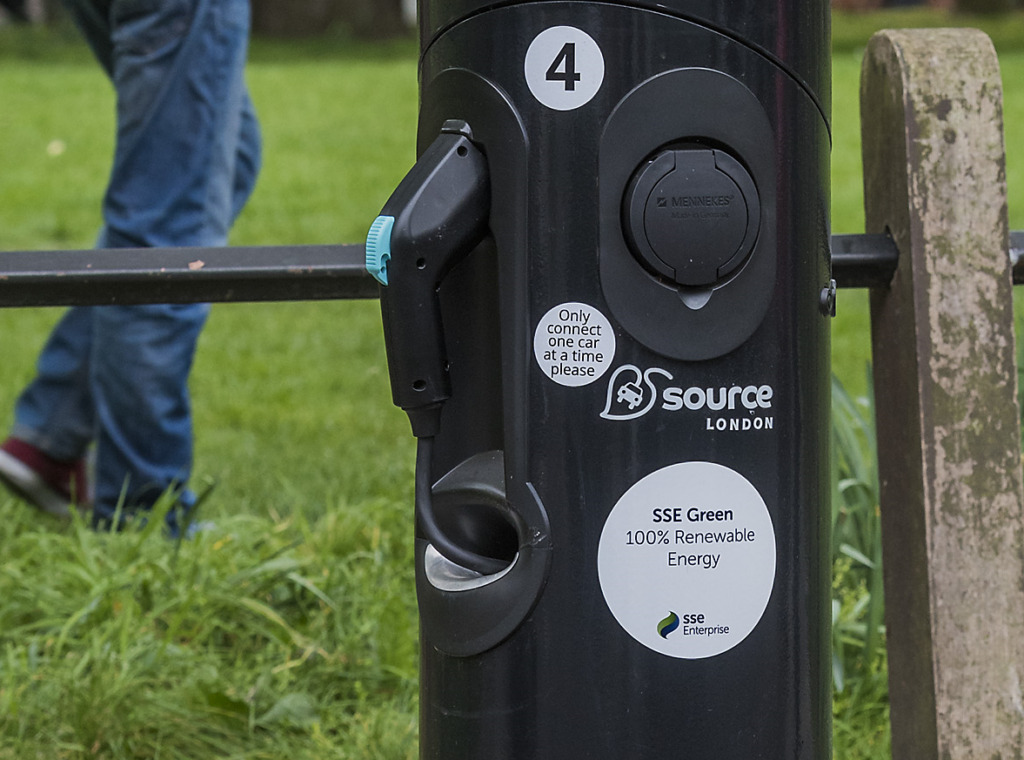The number of electric vehicle charging points in London is set to double in the next year after almost £4.5 million was allocated to 25 of the capital’s 32 boroughs to boost charging infrastructure on London’s streets.
The funding forms part of the £13 million won by the city at the start of the year under the Go Ultra Low City scheme and will see each of the selected boroughs receive up to £300,000 each. This will be used to install up to 1,500 standard-speed on-street charging points in residential areas to provide chargers to those without access to off-street parking.
The boroughs have sought funding allocations based on perceived demand and electric vehicle take-up. Borough teams will now work to identify sites where charging points could be installed to support local residents to make the switch to greener vehicles.
The funding will also support new approaches to charging such as using lamp posts as the base and power supply, a method already being trialled in the Royal Borough of Kensington and Chelsea.
A spokesperson for Transport for London (TfL), which is administering the funds, said the roll-out of the chargers would be subject to each boroughs schedule, but that the network would likely be operational by the summer of 2018.
The roll-out is being seen as the latest initiative in London designed to bring London mayor Sadiq Khan’s long-term vision for zero-carbon transport in the capital another step closer.
“This substantial investment in electric charging points will make a real difference, making electric vehicles an easier and more practical option for Londoners across our city,” Khan said. “We have a bold ambition to make London’s transport system zero emission by 2050, and working with boroughs to roll out more charging infrastructure is a vital part of making this a reality.
The £4.48 million network across the boroughs is in addition to the £18 million announced by TfL in April to be spent on hundreds of fast chargers deployed throughout the city by 2020.
Lilli Matson, TfL’s head of strategy and outcome planning, said: `We’re delighted to be awarding this funding to these boroughs all of whom, like us, are determined to make London’s transport greener and its air quality better. We’d also like to thank these boroughs for being at the absolute forefront of the move to electric vehicles.’
Khan’s Transport Strategy aims for all taxis and private hire vehicles to be zero-emission capable by 2033, for all buses to be zero emission by 2037, for all new road vehicles driven in London to be zero emission by 2040, and for London’s entire transport system to be zero emission by 2050.
The current issues over availability of charging infrastructure will become more acute over these years and so the capital’s current number of public charging points, estimated to be under 1,500, will need to grow substantially.
As well as TfL’s and this new London Borough EV chargers, Uber recently announced plans to build its own network in London after a study conducted with the Energy Saving Trust found insufficient deployment in the city to support adoption of fully electric cars as private hire vehicles.
Further funding will be allocated to interested boroughs in 2018/19 once TfL, London Councils and the GLA are happy with progress being made on the current allocation.
Join free EV sessions at the biggest solar + storage exhibition in the second half of the year 3rd-5th October at the NEC in Birmingham to find out more on the following topics:
- ARE ELECTRIC VEHICLES THE KEY TO IMPROVING AIR QUALITY IN THE UK?
- THE ROLE OF DSOS UNDER THE ENERGY UNION
- AN ELECTRIC VEHICLE FUTURE – WHAT ARE THE CHARGING CHALLENGES AND HOW CAN WE OVERCOME THEM?
- COMPLETING AN ELECTRIC VEHICLE INFRASTRUCTURE PLAN
- AN INSIGHT INTO LOCAL EV AUTHORITY PLANS IN MOTION
Read more and register for your free exhibition ticket here.






